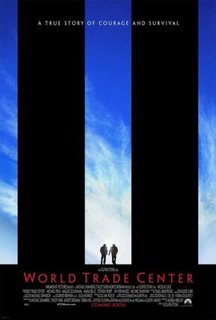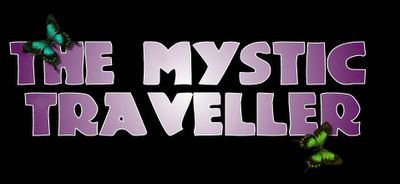9/11 - Are We Really Ready For Hollywood's Take?
 It appears that Hollywood believes we are ready to revisit the terrors of 9/11. There was always an inevitability that this would happen sooner or later, but so soon after is rather surprising. Perhaps, the suits in Tinseltown feel that they can provide a catharsis for those still emotionally reeling from the shock of that most tumultuous of days.
It appears that Hollywood believes we are ready to revisit the terrors of 9/11. There was always an inevitability that this would happen sooner or later, but so soon after is rather surprising. Perhaps, the suits in Tinseltown feel that they can provide a catharsis for those still emotionally reeling from the shock of that most tumultuous of days.The first of this series of interpretations is United 93, directed by Peter Greengrass. This incredible film focuses upon the hijacking of the United Airlines' aircraft that failed to reach the terrorists' target, perhaps due to the bravery of the passengers onboard.
Right from the start, Greengrass throws us into a very real world, applying the qualities of documentary filmmaking techniques, with its raw video footage, shaking camera and sudden pans.
All this is further enhanced by his choice to use unknown actors. The characters they play do not fit into the standard overblown parameters of Hollywood design. These are normal people doing normal things on a day that became quite unlike any other. There are no John Waynes here.
United 93 provides the viewer with a very real interpretation - and let's not forget that it is an interpretation - of the events that led to the aircraft slamming into a field in Pennsylvania. Politics is left out, as it should be, because politics had little importance for those involved until after the tragedy occurred. The passengers on that flight had no time to be concerned about the then virtually unknown Osama bin Laden; their concern was not about ideology, but rather survival in the moment.
The narrative of the story is based upon various sources, including the communication between the passengers and family members through in flight telephones and mobile devices. What seems certain is that as knowledge spread about the attacks on the World Trade Centre, the passengers on United 93 took it upon themselves to revolt against the hijackers. It certainly appears that they succeeded, albeit with tragic results.
United 93 is a remarkable film that would be considered a masterpiece of filmmaking, even if its subject matter were not so emotive and real. It certainly treats its subject matter with the gravity, terror and appropriateness that it deserves. By being extremely unconventional in filmmaking terms, it succeeds in dealing with the issues in a mature, honest and respectful way, that provides a valuable record of those fateful events.

Oliver Stone's World Trade Centre is everything that United 93 is not. This is very much the work of a Hollywood director. Stone, who is widely considered a maverick filmmaker, is nonetheless one of the key contributors to modern cinematic form. His influence hinders him here, because he has made a piece that attempts to step out from conventional filmmaking, but fails entirely, because his idea of the unconventional has now become conventional. This is pure Hollywood from beginning to end.
His film focuses upon the true story of two policemen, who miraculously survive under the rubble of one of the collapsed towers. The film works at its best, while it is building up to the attack. In the title sequence, Stone presents a regular New York morning, where people are commuting to their offices for what they believe will be a routine day. The normalcy that Stone invokes is highly unsettling, as we can knowingly contrast it with the horror that inevitably is about to befall the city.
Perhaps, the biggest fault with the film is the casting of Nicholas Cage. Cage is an actor who is inconsistent in performance and range. He is also somewhat of a fixture in Hollywood Royalty. In World Trade Centre he acts his heart out, and would be utterly acceptable if the events had been fictional. However, his familiarity distracts the viewer from the reality behind the film. It would have been far more successful, if an unknown had been cast: somebody who does not cast a shadow like Cage, but is someone more like ourselves.
There are many technically brilliant moments in Stone's film. In particular, the moments leading to the tower's collapse are eerie and effective.
Stone's dedication, sympathy and awareness for what occurred on 9/11 is not in question. But, his film ends up appearing as somewhat of a slick imperfect beast that leaves a tingling sensation of voyeuristic guilt for watching it.
During the advertising campaign for the movie, footage of the building imploding within was shown incessantly, proving to us all how great Hollywood effects have become, but at the same time acting as a bait to feed our unabated curiosity and fascination with 9/11. It seems that Stone's intention is to provide us with a simulation of a different, new vantage point than the one we were given on the various news channels in 2001. Stone has a reputation for insensitivity. He certainly provided enough repeated blown up footage of Kennedy's head being split apart by Oswald's bullet in his film, JFK.
Rather interestingly, while contrasting the films, Stone's is a dull, overlong affair, whilst Greengrass's never let's up on the tension. Possibly, this is more likely due to differences in the use and balance of narrative supposition. Stone seems incapable of (or disinterested in) retaining the focus on the two police officer's plight, seemingly finding a reprieve from Cage's monotone ramblings, by shifting the story to the anguish of his worried wife.
Certainly, if the same filmmaking techniques of Greengrass's film had been applied, then perhaps, the immediacy of the policemen's claustrophobic nightmare would have felt more engaging and relevant. Another successful example of a film capturing intense fear, was the independent film Open Water. Like United 93, Open Water is raw filmmaking with no sheen, and this easily manipulates the audience into being able to empathise with the plight of the characters. We feel that we are also partaking in their suffering as our sight of line follows that of the bobbing camera that rolls with each wave of the sea.
Both United 93 and World Trade Centre portray a day that most of us hope will not be repeated; although, there seems to be an inevitability that worst things are coming. The 9/11 atrocity was an event that has been numerously compared to a cinematic experience, because of the media coverage that followed it, and the ingenuity of the terrorists to perpetrate such a spectacular attack. 9/11 should only be told in a way that manages to recapture the rawness and chaos of that news network footage that remains so indelibly in our memories.



4 comments:
Not seen either film,myself. The only 9/11 themed drama I saw lately was the 3 hour TV movie - "Path to 9/11" which certainly didn't escape politics, because it was intentionally built around a political aim,with some fact and "lots" of fiction thrown in.
One thing that stuck in my mind was the portrayal of Muslims praying, which looked like a scene of the Thuggee cult straight out of Indiana Jones and the Temple of Doom. The filmakers had Muslims praying with a kind of weird demonic drone to their voice, which was laughable if it wasn't so serious how that could influence peoples minds.
Much of the dialogue from the 'heroes' was giving out the underlying "message" the film wanted to influence people with. Which was - "Shoot first, ask questions later. Because waiting for anything and caring about the lives of people caught up in your shooting to get bad guys, means you lose valuable time". It was blatant propaganda, albeit wrapped around a very exciting drama movie.
Even though they put a "disclaimer" at the start tellign everyone it was a 'dramatization'. Who will spend the time to find out which events/dialogue actually happened, and which didn't? Very few.
Viewers who don't know the history any differently, will have taken it all as gospel truth. That is why I think any drama or film about these events is still too dodgy at this sensitive time when such things 'will' influence important political voting,possible xenephobia, and support for military action (or not) globally. Saying all that, this is nothing new. Films were being made while WWII and Vietnam were actually taking place too. Many of those were also trying to influence the mindset of people watching, to either support or disown the wars.
Alexander, I do think that, as good as United 93 was, it is much too early for films to be made about 9/11.
Only through a distance in time can a a particular historical event be seen through a more forgiving perspective for errors. At this present time, the event is still so fresh that any film made now will be criticised for being either political, propagandist or disrespectfully inaccurate.
Certainly, as the intial repercussions of 9/11 continue to unfold, there are still too many dangers to be had from misrepresentation.
Having said that, I do believe that Oliver Stone, as flawed as his film is, had good intentions in making World Trade Centre.
As for your mention of the Vietnam War, who could forget the crassness of John Wayne starring in Green Berets - a horrendous piece of propagandist clap-trap.
Oliver Stone's vision is pretty good. In particular, the movie he made about The Doors is a favourite. Although even band members felt he went way over the top in portraying Morrison's wild side, the movie captured the drug induced blur of things perfectly. I don't know Stone's 'offical' political leanings,so I cannot say if he was hoping to influence anything either way with his 9/11 movie. But as you say, the very events are so fresh in peoples minds. It means that these movies can serve (intentionally or un-intentionally) to drag up those fears and anger again, and politicians can siphon that off for their purposes. Movies impact us greatly. Btw, Green Berets. Possibly watched the movie decades ago. But I can't remember a thing about it now. "Get off your horse and drink yer milk, Ho Chi Minh"?
I don't think I am ready to watch a film about it as entertainment! I still can't hear a plane overhead without thinking about it, and I still have dreams where I am seperated from my children watching a plane crash down. I havn't seen either film, but the first sounded like the one I might watch in the future.
Post a Comment